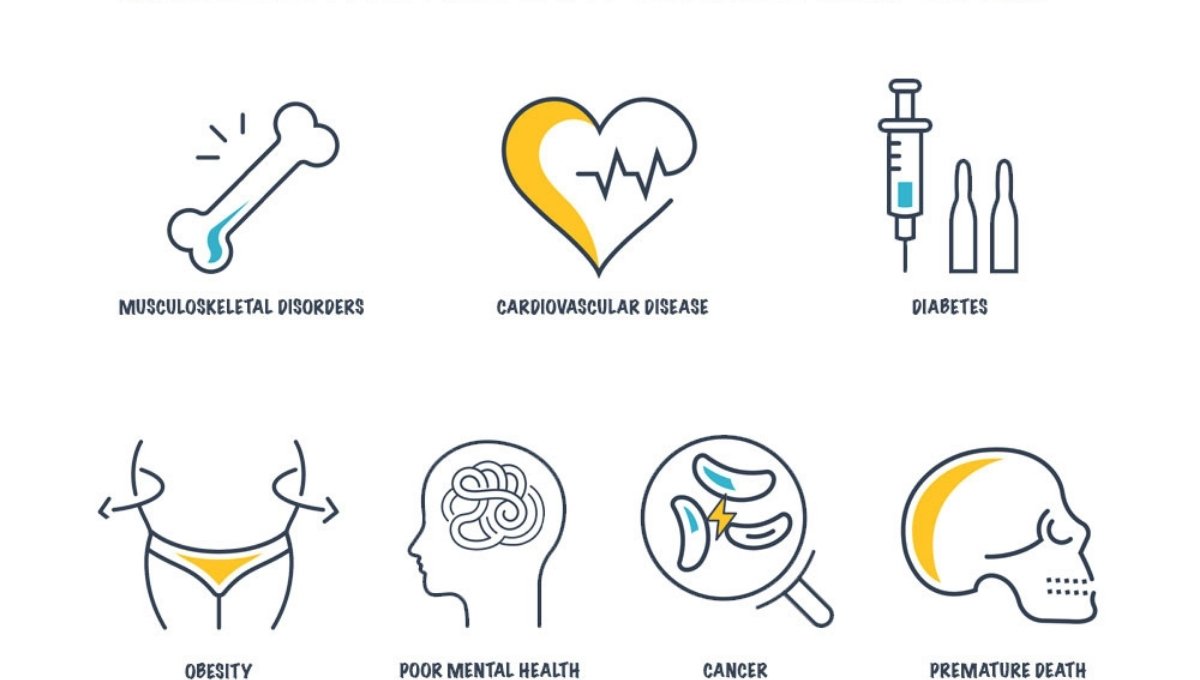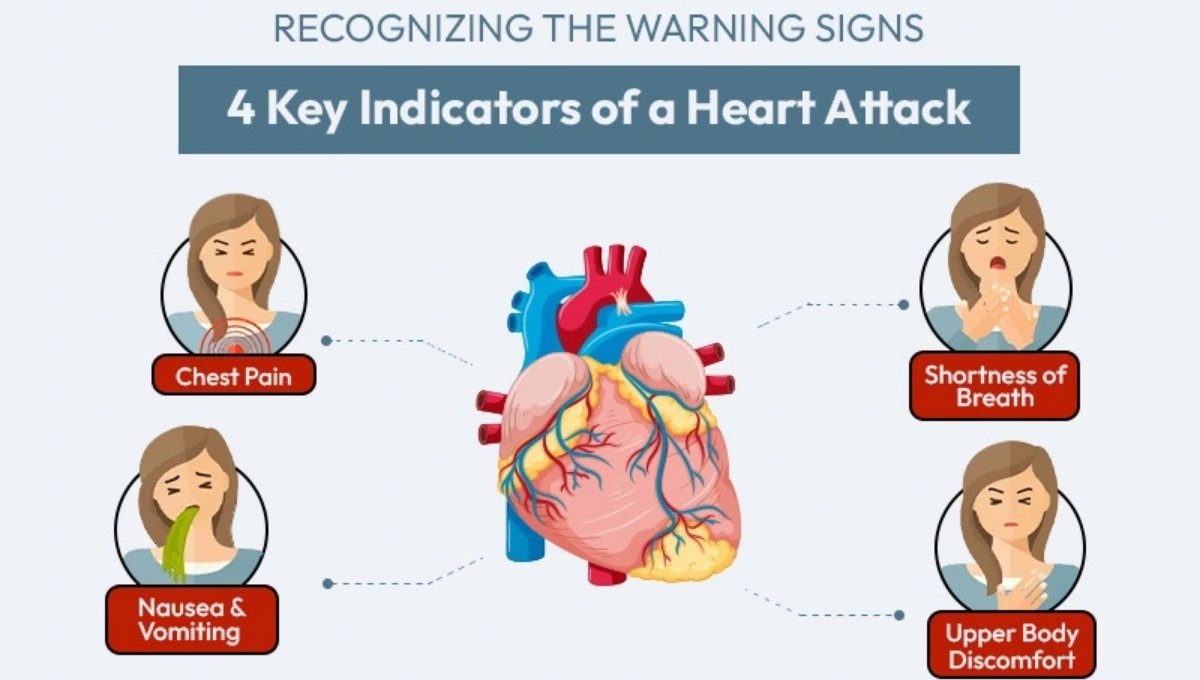Prolonged Sitting Risks: Sitting for extended amounts of time at work and at home has become commonplace in the current digital era. However, studies have shown that extended sitting can cause a number of major health problems in addition to exhausting the body. This essay will examine the dangers of extended sitting, how it affects the body, and simple strategies to reduce those risks.
Effects of Prolonged Sitting on the Body

Many body functions are impacted by prolonged sitting. Your metabolism slows down if you sit for six hours or longer. Blood sugar levels stay uncontrolled and less calories are burned. Additionally, blood circulation decreases, which puts additional strain on veins and the heart. Stiffness, pain, and bad posture result from the weakening of the hip, gluteal, and lower back muscles. Mental health is also impacted. Extended periods of sitting can cause weariness, mood fluctuations, and elevated worry. For this reason, it is impossible to overlook the health hazards associated with extended sitting.
Scientific Findings on Sitting More Than 6 Hours
According to research, sitting for more than six hours a day is associated with major health issues. Long periods of sitting have been linked to an increased risk of obesity, diabetes, and heart disease, according to studies. Increased blood pressure and cholesterol are the results of sitting for six hours or longer. The majority of office workers sit for six to seven hours per day, according to observations. Common problems including exhaustion, back pain, and low energy have resulted from this. This proves that the dangers of extended sitting are a practical issue rather than only hypothetical ones.
Exercise and the Effects of Sitting
The detrimental consequences of sitting are not entirely offset by going to the gym or taking a morning walk. Moderate daily exercise, including brisk walking, cycling, or stretching, is crucial, according to research on the effects of exercise on extended sitting. It’s also critical to take brief breaks throughout the day. Walking, stretching, and standing up every half hour enhance blood flow and lessen exhaustion. This increases vitality and attentiveness.
Tips to Avoid Prolonged Sitting Risks

Splitting up your sitting time into shorter bursts is one way to prevent sitting-related health problems. Stretching frequently, holding walking meetings, and using a standing desk have all been beneficial. Even minor adjustments at work or home might have positive effects. The detrimental consequences of a sedentary lifestyle can be lessened by taking the stairs, stretching sometimes, and going for a little stroll after meals. This keeps your body active and promotes greater long-term health.
Impact on Mental Health
Long periods of sitting have an impact on more than simply physical health. Increased stress, exhaustion, and trouble focusing can also result from prolonged sitting. Mental health can be impacted by sedentary behavior as well as diseases like diabetes. Mindful movement and regular breaks are beneficial. Quick workouts that improve mood, concentration, and productivity include leg motions, shoulder rolls, and neck stretches. These behaviors maintain mental and physical activity.
Also read:
Benefits of Laughing: How a Simple Smile Can Boost Health, Reduce Stress, and Add Years to Life
Boost Hormone Health: 7 Easy Habits That Can Transform Your Life
Lifestyle Changes to Manage Diabetes: Easy Tips for a Healthier Life














